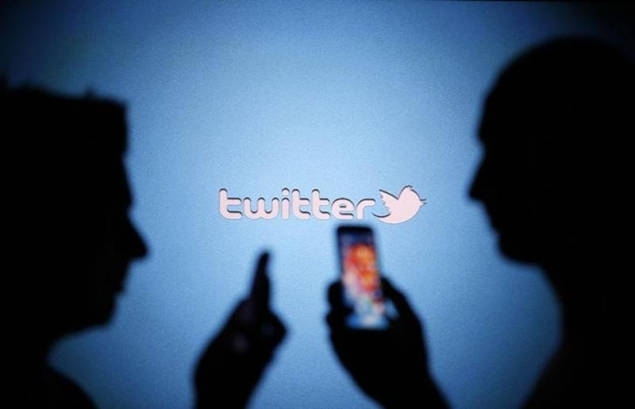- Home
- Internet
- Internet News
- Anti government action not the goal of 'Cuban Twitter': USAID chief
Anti-government action not the goal of 'Cuban Twitter': USAID chief

The social network set up as a form of Twitter in Cuba was not designed to foment dissent against Havana's communist government, the head of the U.S. agency behind it said on Tuesday.
Rajiv Shah, the administrator of the U.S. Agency for International Development, appeared before a Senate subcommittee to discuss the agency's $20 billion budget but some of the questioning focused on the social network ZunZuneo that USAID launched in Cuba in 2010.
Last week, a lengthy report by the Associated Press said ZunZuneo, which took its name from Cuban slang for a hummingbird's tweet and was similar to the U.S.-based Twitter network, had been set up as a tool for mobilizing demonstrations in Cuba.
Patrick Leahy, the Vermont Democrat who chairs the subcommittee, called ZunZuneo a "cockamamie idea" that endangered Alan Gross, 64, an American who is serving a 15-year sentence in Cuba after being arrested in 2009 while working for USAID there.
The AP said the USAID plan called for ZunZuneo to start with non-controversial discussion topics such as sports, music and weather and that its operators would introduce politics once the network had established a sizeable following. They hoped eventually to use it to "renegotiate the balance of power between the state and society," according to a USAID document cited by the AP.
Shah said ZunZuneo was not intended to disrupt the Cuban government and was in line with USAID policy to improve communications in the country, including through Internet usage, and was similar to programs it had in other parts of the world.
Planning for ZunZuneo began before Shah joined USAID in early 2010 and he told Leahy he did not know who came up with the original idea for it. The network had about 68,000 users when it was shut down in 2012.
ZunZuneo was a "discreet" operation, not a covert one, Shah told the Senate State, Foreign Operations and Related Programs Subcommittee.
Disputes AP Report
"We did not advertise that that platform was supported by the U.S. government," he said, adding that the social network was not done through shell corporations to mask U.S. involvement, as the AP had reported.
He said the AP story had several other inaccuracies, which the USAID had chronicled on its website.
Leahy asked Shah if anyone considered what would happen to Gross if the Cuban government discovered U.S. involvement in ZunZuneo and said it would have put him at risk, as well as USAID workers around the world, who could be perceived as spies.
Gross was arrested in Cuba in December 2009 while trying to establish an online network for Jews in Havana. He is now serving a 15-year prison sentence in Cuba and on Tuesday, his lawyer said Gross had started a hunger strike a week ago to protest his treatment by the U.S. and Cuban governments.
"As far as I can tell, the USAID and the Obama administration have all but forgotten about him," Leahy said.
Shah said he had worked personally on Gross' behalf but that State Department officials had primary responsibility for winning Gross' freedom.
"I think about Alan every day," Shah said. "... State Department takes the lead in these types of issues and they are highly sensitive and I would defer to them to be able to explain to you in the appropriate private setting what's taken place."
© Thomson Reuters 2014
Get your daily dose of tech news, reviews, and insights, in under 80 characters on Gadgets 360 Turbo. Connect with fellow tech lovers on our Forum. Follow us on X, Facebook, WhatsApp, Threads and Google News for instant updates. Catch all the action on our YouTube channel.
- Samsung Galaxy Unpacked 2026
- iPhone 17 Pro Max
- ChatGPT
- iOS 26
- Laptop Under 50000
- Smartwatch Under 10000
- Apple Vision Pro
- Oneplus 12
- OnePlus Nord CE 3 Lite 5G
- iPhone 13
- Xiaomi 14 Pro
- Oppo Find N3
- Tecno Spark Go (2023)
- Realme V30
- Best Phones Under 25000
- Samsung Galaxy S24 Series
- Cryptocurrency
- iQoo 12
- Samsung Galaxy S24 Ultra
- Giottus
- Samsung Galaxy Z Flip 5
- Apple 'Scary Fast'
- Housefull 5
- GoPro Hero 12 Black Review
- Invincible Season 2
- JioGlass
- HD Ready TV
- Latest Mobile Phones
- Compare Phones
- Realme P4 Lite
- Vivo V70
- Vivo V70 Elite
- Google Pixel 10a
- Tecno Camon 50
- Tecno Camon 50 Pro
- Lava Bold N2
- Vivo V60 Lite 4G
- Asus Vivobook 16 (M1605NAQ)
- Asus Vivobook 15 (2026)
- Infinix Xpad 30E
- Brave Ark 2-in-1
- Amazfit T-Rex Ultra 2
- boAt Chrome Iris
- Xiaomi QLED TV X Pro 75
- Haier H5E Series
- Asus ROG Ally
- Nintendo Switch Lite
- Haier 1.6 Ton 5 Star Inverter Split AC (HSU19G-MZAID5BN-INV)
- Haier 1.6 Ton 5 Star Inverter Split AC (HSU19G-MZAIM5BN-INV)


![[Partner Content] OPPO Reno15 Series: AI Portrait Camera, Popout and First Compact Reno](https://www.gadgets360.com/static/mobile/images/spacer.png)









